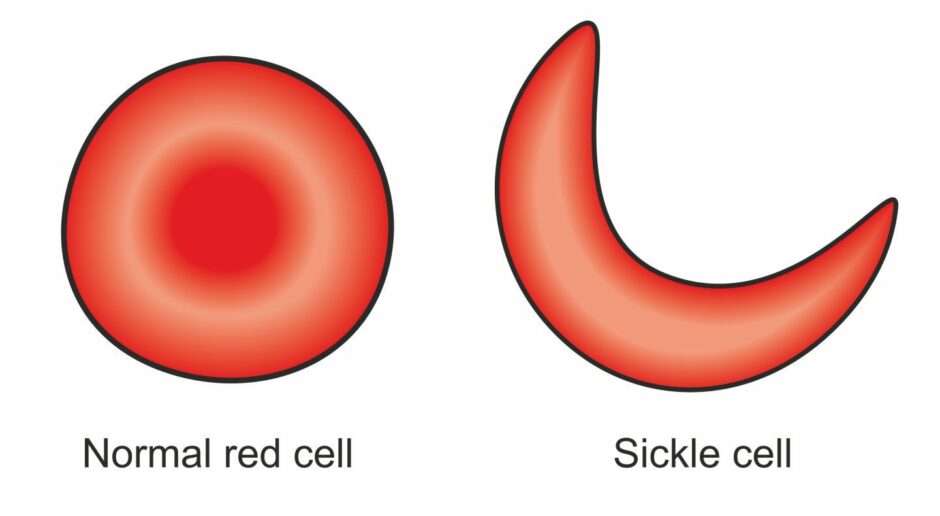For 33 years, Frances McCormick has suffered regular spells of excruciating pain which often leave her in hospital for weeks at a time.
The Aberdeen admin officer, originally from Nigeria, was diagnosed with sickle cell anaemia when she was just six months old.
The inherited condition affects around one in 2,000 babies and is most common among people of African or Caribbean descent.
It changes the shape of some red blood cells, causing them to get stuck together and clog up blood vessels.

Pain so severe it needs an ambulance
Frances suffers between three to five major flare-ups of sickle cell anaemia every year.
She explained: “It starts with me feeling dizzy and having sharp pains throughout my body.
“Then I have a throbbing pain which matches my heartbeat, it just doesn’t go away without painkillers.”
Sometimes Frances falls ill for seemingly no reason, and other times it can be triggered by stress, freezing weather or dehydration.
These can be so severe she has to call an ambulance, and often needs to spend around a fortnight in hospital recovering.
New treatments are being approved for use in Scotland, which could help patients like Frances who are struggling with their condition.
“When the pain starts, I take strong painkillers, fluids and sometimes antibiotics,” she explains.
“I’ve had some blood transfusions and they haven’t been very effective with me.
“They aren’t as effective as just having fluids, so it’s really just waiting it out.”
‘I can’t look forward to holidays or events – just in case I can’t go’
While Frances is able to work from home when she’s ill, her sickle cell anaemia has had a greater impact on her personal life.
It’s hard for her to make plans and look forward to them, just in case they’re derailed last-minute.
“If there’s a big event coming up, I try my best not to get excited for anything,” she said.
“I’ve been sick on big events and felt perfect all week leading up to it, then that night I have aches, my arms hurt, my leg hurts – I have to call an ambulance.”
There have been instances where I’ve been the one having to explain [to my doctor] what happens.”
Frances believes there’s a lack of awareness surrounding sickle cell anaemia – to the extent she’s found herself explaining her condition to experts looking after her.
“I’m really thankful to my doctor because she really knows a lot about what she’s talking about,” Frances adds.
“But there have been instances where I’ve been the one having to explain: ‘This is what usually happens, this is what you need to give me.’
Read more:
Campaign to increase awareness of sickle cell disorder
NHS boss asked by patient: ‘If I was white, would I be treated like this?’
Musa Watila: I’m a doctor who relies on your blood donations to survive



Conversation